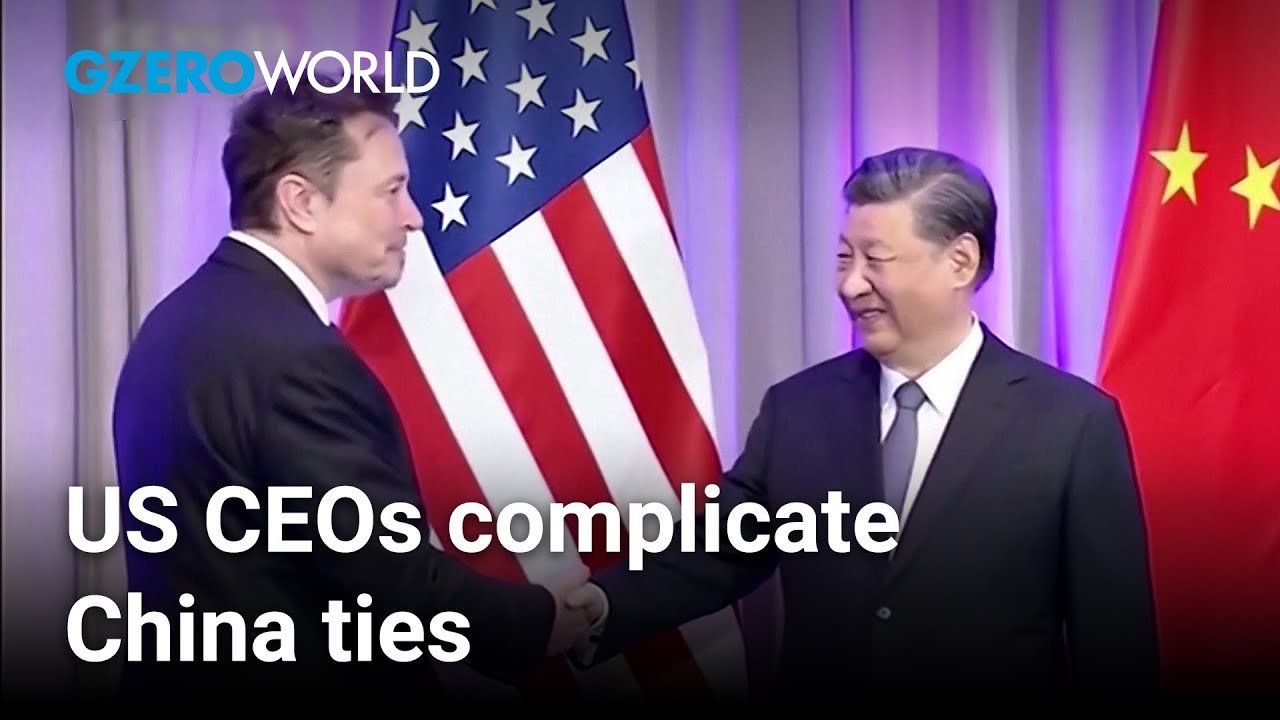GZERO World Clips
US CEOs too influential on China policy, says Rahm Emanuel

US CEOs too influential on China policy, says Rahm Emanuel | GZERO World

US CEOs are too cozy with Beijing, says US Ambassador to Japan Rahm Emanuel.
At the APEC summit last November in San Francisco, heads of state and diplomats from nations in the Asia-Pacific met to address a wide array of strategic interests and challenges. But no other meeting was as closely watched as that between US President Joe Biden and Chinese President Xi Jinping. As successful as that meeting may have been on a PR level (at least according to the delegations of each leader), one man present took special note of what happened afterward. US Ambassador to Japan, Rahm Emanuel, told Ian Bremmer about that summit during an exclusive interview in the latest episode of GZERO World, filmed at the Ambassador's residence in Tokyo, Japan.
"President Xi goes to have a meeting with American CEOs who give him a standing ovation, though he hasn't yet said anything," recounted Ambassador Emanuel. "The President of the United States goes to an event, and all the heads of state are there. That tells you about alliances, that tells you about the interests of China."
Bremmer then noted that it also tells you something about the interests of American CEOs. to which Emanuel responded: "I think the American CEOs are way too influential in American foreign policy in this region, way too influential."
Think you know what's going on around the world? Here's your chance to prove it.
The US government will reportedly fund MAGA-aligned parties and think tanks in Europe. But with US President Donald Trump’s favorability in Europe so low, do they even want the money?
Zelensky agrees: elections matter #PUPPETREGIME
As more small businesses move sales, payments, and customer relationships online, they unlock new opportunities, but they also become easier targets for cyber-criminals and other threat actors.